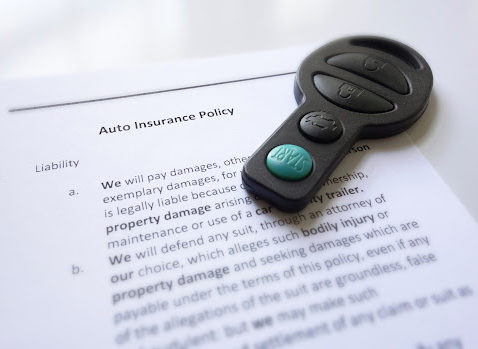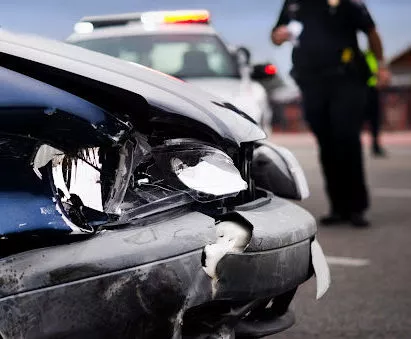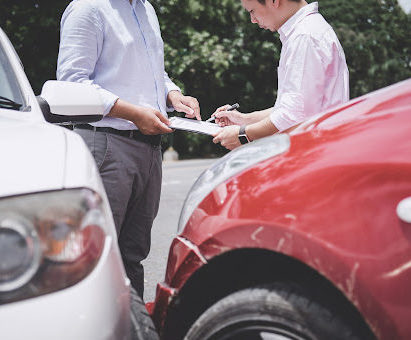Louisiana Car Insurance Laws

Whether you’re buying a new car, being gifted a used car, or bringing your car to Louisiana from out of state, Louisiana car insurance laws dictate that you’ll need some form of auto insurance. Like every state, Louisiana has insurance minimums that all drivers are required to carry in order to drive on the roads.
Not only is carrying insurance a good idea—in Louisiana, it’s required to have at least liability insurance, in case you cause a car wreck. Below, we’ll discuss Louisiana auto insurance laws so that you can be informed and prepared as much as possible.
Louisiana Car Insurance Minimum
When it comes to Louisiana auto insurance limits, the law requires every driver to have at least liability insurance coverage. Liability insurance covers injuries, property damage, and other costs incurred by another motorist when you’re at fault for an accident.
In Louisiana, drivers must carry a minimum bodily injury and property damage liability coverage of 15/30/25, or
- At least $15,000 in physical injury coverage per person injured
- At least $30,000 total coverage for everyone involved in the accident
- At least $25,000 in property damage coverage
This means you need a liability policy that will guarantee at least $15,000 to every single person injured in an accident you’re liable for (up to $30,000 total), as well as $25,000 for any property damage, such as damage to the other driver’s car. Different insurers will offer different rates based on your driving history and other factors, so it’s worth shopping around for a good deal.
Louisiana Car Insurance Coverage

Keep in mind, the minimum liability coverage required by the state won’t insure you or your vehicle in an accident. If the other driver is at-fault for your accident, their liability insurance should cover your injuries (though only to the above limits), but if you’re found liable, you’ll be on your own.
For this reason, many drivers opt to purchase personal injury protection (PIP) insurance through their providers in addition to the required liability insurance, as well as collision coverage for their vehicles.
PIP coverage can help pay for your or your passengers’ damages if you’re at fault or if the other driver’s insurance is insufficient, and collision coverage can help pay for damages to your vehicle.
Louisiana Auto Insurance Requirements: full coverage
Another option for insurance in Louisiana is called full coverage, which is any coverage that goes above and beyond the state’s legal minimum. In addition to the required bodily injury and property damage coverage, full coverage insurance can also include collision insurance, which covers repair or replacement costs of your car if you’re in an accident, and comprehensive insurance, which covers repairs if your car is damaged by natural disasters, falling objects, theft, vandalism, fires, flood, or animals.
Of course, full coverage insurance tends to cost much more than minimum liability coverage—more than double the amount in many cases—but many in Louisiana opt for more complete coverage for greater peace of mind, given our state’s propensity to hurricanes, car wrecks, and more.
Louisiana’s No Pay, No Play Law
To incentivize drivers to purchase the minimum required insurance, the Louisiana legislature passed a No Pay, No Play statute in 2011. This law stipulates that, even if you’re a victim of another person’s negligence in a wreck, you cannot collect most damages unless you carry car insurance yourself.

The law does allow accident victims to collect damages after the first $15,000 of bodily injury and the first $25,000 of property damages if they’re uninsured, but those amounts are usually only reached in catastrophic accidents. What’s more, if you’re uninsured in a Louisiana car accident, you’ll still be on the hook for up to $40,000—which is a lot of money.
In addition, the No Pay, No Play law doesn’t apply to drivers from a state that doesn’t have minimum insurance requirements, or with requirements lower than Louisiana’s. The law also makes an allowance for cars that are legally parked when they’re hit.
Even with the allowances, the law aims to encourage Louisianans to buy minimum insurance coverage that can help everyone stay safer while driving. Even with this incentive, around 15% of drivers in Louisiana still don’t have insurance. For this reason, you might want to purchase Uninsured/Underinsured Motorist Insurance (UMI) from your provider—this can help pay for your damages if you’re hit by an uninsured driver.
Louisiana And Pure Comparative Negligence
When determining liability for a car wreck, Louisiana courts use a legal doctrine called pure comparative negligence. This means that more than one party can be held liable for an accident and that each party’s damages are adjusted according to their proportion of liability.
For a concrete example, imagine this scenario: Bill crashes into Linda because he was adjusting his car’s stereo and didn’t notice her turning left in front of him. However, Linda should have waited to turn until Bill had passed and it was safe. The crash results in $20,000 of damages for Bill and $28,000 for Linda.
The court determines that Bill is 60% liable for the accident, making Linda 40% liable. This means that, if Linda sues, Bill will owe her $28,000 (her damages) × 60% (100% less her liability), or $16,800 in damages.
In a Wreck? Call Gordon McKernan Injury Attorneys
If you’ve been in a car accident, you rely on your insurance or the other drivers to help pay for your damages. However, insurance companies want to settle claims as quickly and cheaply as possible—which is rarely enough to fully cover your damages.

You need a dedicated lawyer on your side to recover the full amount of compensation you’re owed for your damages after a car wreck. Gordon McKernan Injury Attorneys are Louisiana car wreck lawyers who’ve been in business for 30 years, so we know what it takes to get you the money you need to heal.
Give us a call today at 888.501.7888 for a free consultation. An experienced personal injury lawyer will start on your case right away.

